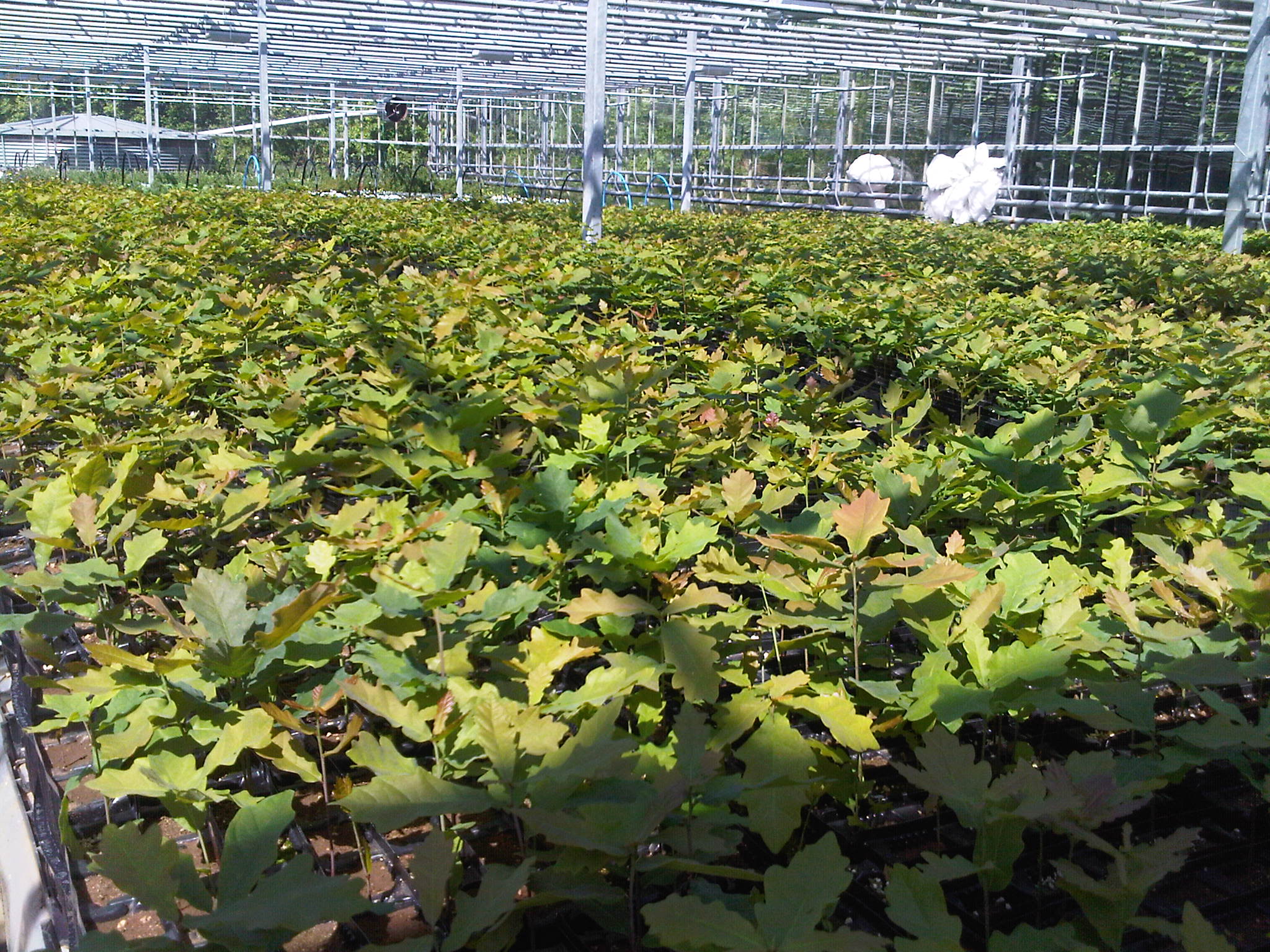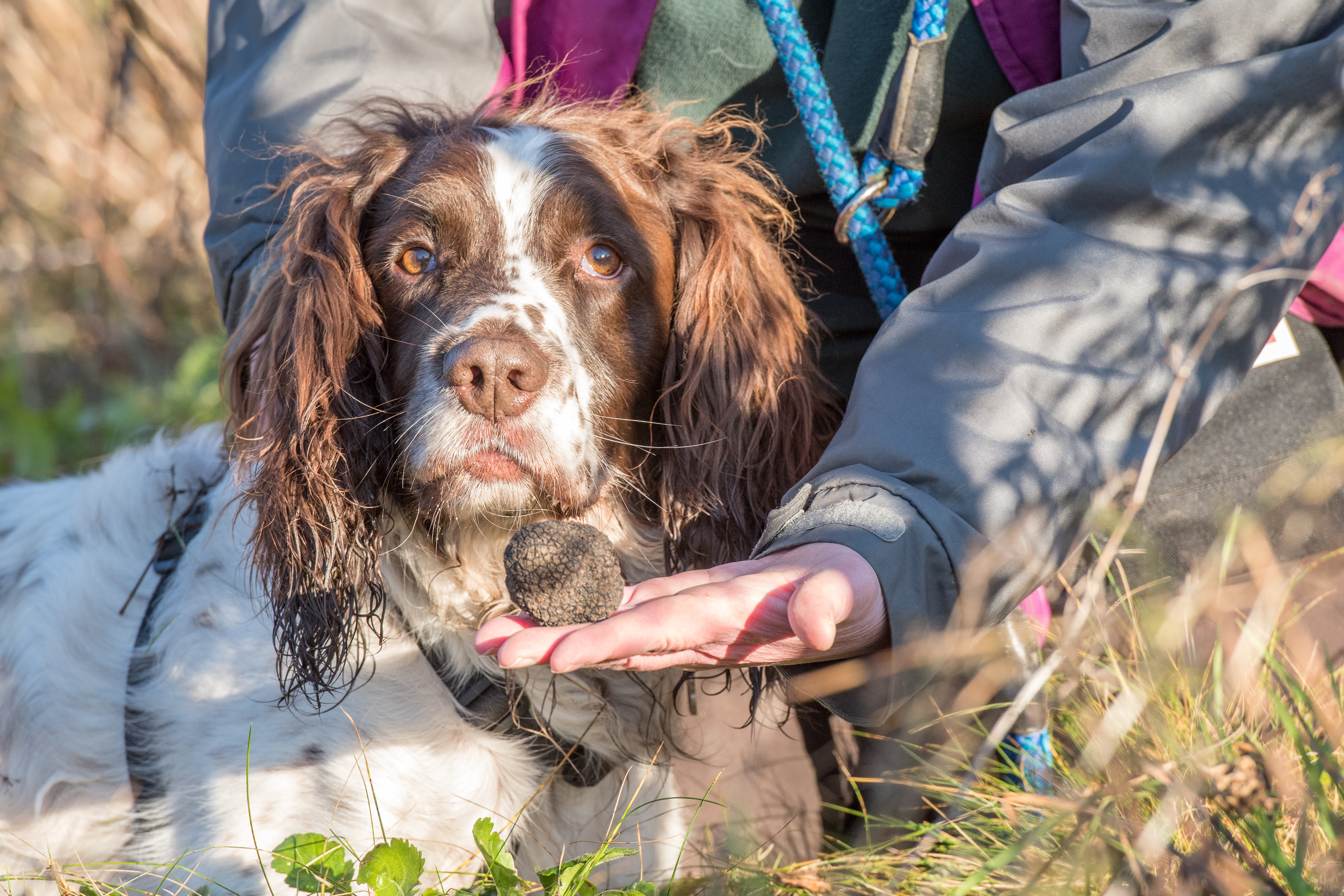Early truffle harvest on the newest UK truffle farm
June 5, 2019CLA Summit 2019: Climate Change – Risk or Opportunity?
June 27, 2019Dr Thomas was recently interviewed about our world leading truffle cultivation technology and how it’s surprising to some that the process is based in Lancashire, UK. The article discusses how our research and worldwide network means that we can stay at the forefront of truffle cultivation techniques. It also looks at how British truffle farming is developing, including how restaurants, such as Michelin-starred Moor Hall, are so keen for locally produced truffles that they’re growing their own!
World leaders in truffle farming technology, based in...Lancashire, England!
Dr Thomas was recently interviewed about our world leading truffle cultivation technology and how it’s surprising to some that the process is based in Lancashire, UK. The article discusses how our research and worldwide network means that we can stay at the forefront of truffle cultivation techniques. It also looks at how British truffle farming is developing, including how restaurants, such as the two Michelin-starred Moor Hall, are so keen for locally produced truffles that they’re growing their own!
Excerpts of the article are found below and the full article by journalist Martin Pilkington can be found at Lancashire Life.
At a secret location in the Lancashire countryside a British gastronomic revolution is happening. It's secret for one simple reason – they are growing the culinary equivalent of gold. In fact, it's black gold; the highly prized truffle.
At wholesale, UK truffles go for an impressive £400 a kilo, but at retail the sky's the limit. That is why Dr Paul Thomas and his company, Mycorrhizal Systems, keep the locations of their activities a closely guarded secret.
Most of us regard these precious fungi as a very European delicacy. 'But we have a rich history of truffle-growing in Britain,' says Paul. 'Mrs Beeton wrote about English truffles, and Queen Victoria would be presented with the biggest of the season, but that has all died out. We want to bring it back.'

Mycorrhizal Systems' truffle tree nursery in Lancashire, England
Row upon row of tiny trees fill their commercial greenhouse in the countryside a few miles from Preston.
We have more than 30 orchards around the country now, including some in Lancashire. But we need more.'
It's a highly technical business. Spores are processed in their laboratory on the Isle of Bute, but the trees are raised and inoculated in Lancashire. To keep flavourless interlopers like the Chinese truffle out, the seed truffles are all DNA-tested to make sure they're the desired native summer truffle (in fact native to 26 countries across Europe, and known in France as the Burgundy truffle) or the Périgord truffle, and the greenhouse and all their equipment kept scrupulously clean by the carefully trained team of experts.
Inoculation is only the start of the tricky process, which is why Paul's preferred business model is a 70/30 partnership with the orchard owners, his staff providing consultancy to maximise the yield of aromatic fungi.
'The truffles need chalky, alkali soils, but most of ours in Britain are acidic, so we add a lot of lime to create the right conditions.
Paul, who is linked with the University of Stirling and, as an expert in the field, regularly publishes scientific papers on this still evolving subject. 'They need two mating strains like you have with plants. This wasn't actually known until 2010. Prior to that they assumed it was like yeasts that bud off, so now we know you ideally need at least three trees.'
Trees must be inoculated and planted very young, or the eventual truffle crop will be reduced, and contamination can be a risk. Keeping the ground around trees free of competing weeds and grass helps the truffles, they thrive best under organic cultivation, and even the way the trees are pruned can have an impact.
Scientific observation has disproved previous received wisdom, too. 'They say hazels produce truffles quicker than oaks, but we've found on some sites the oaks are producing quicker, though so far we haven't worked out why,' says Paul.

Dr Thomas says springer spaniels are excellent truffle hunters but you can even train chihuahuas
From planting to the first truffles growing takes about six years. Then some more expert help is needed to find them, in the form of specially trained truffle hounds. Paul recommends the springer spaniel as ideal, though he knows of corgis, labradors and even chihuahuas being trained to find truffles.
The best dogs are taught to put a paw over where a truffle lies – somewhere between the soil surface and six inches beneath. Pinpointing the buried treasure minimises digging and consequent disruption of the delicate ecosystem in which the fungus thrives.
The truffle hounds get tasty treats as rewards, but the orchard owners enjoy benefits gastronomic and economic. 'UK truffles sell for about £400 a kg wholesale, and retail for far more,' says Paul.
His customers have ranged from large estates, planning to boost income from forestry with truffle production, to domestic gardeners buying online through the retail outlets supplied by his company.
Moor Hall, the two Michelin-starred restaurant near Ormskirk, is another client. 'They contacted me when they were building their kitchen garden from scratch, and they've got a small truffle plantation. When you walk from the car-park you'll eventually go past an information board explaining about the truffles that could be on your plate later.' Sounds like a long-term plan to get that third star.
'The truffles need chalky, alkali soils, but most of ours in Britain are acidic, so we add a lot of lime to create the right conditions.
Paul, whose office base is in Leyland, is linked with the University of Stirling and, as an expert in the field, regularly publishes scientific papers on this still evolving subject. 'They need two mating strains like you have with plants. This wasn't actually known until 2010. Prior to that they assumed it was like yeasts that bud off, so now we know you ideally need at least three trees.'
Trees must be inoculated and planted very young, or the eventual truffle crop will be reduced, and contamination can be a risk. Keeping the ground around trees free of competing weeds and grass helps the truffles, they thrive best under organic cultivation, and even the way the trees are pruned can have an impact.
Scientific observation has disproved previous received wisdom, too. 'They say hazels produce truffles quicker than oaks, but we've found on some sites the oaks are producing quicker, though so far we haven't worked out why,' says Paul.
